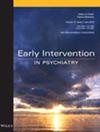Relationship Between Personality Traits and Psychological Well-Being in Childhood Obesity: A Cross-Sectional Study Following the Five-Factor Model
Abstract
Introduction
Childhood obesity, a global public health issue, is associated with numerous psychological comorbidities. Identifying risk factors that could impact the psychological well-being of this population is essential. Personality traits have been linked to obesity and mental health; however, research in children remains limited. Personality traits may predict differences in mental health in children with obesity by influencing emotional, cognitive and behavioural patterns, which could affect how they cope with lifestyle habits, weight-related stigma and other psychosocial stressors associated with obesity. This study aimed to evaluate the relationship between personality traits and psychological well-being variables in children with excess weight.
Methods
A cross-sectional study was conducted with a sample of 145 children with overweight or obesity (mean age = 10.34, SD = 1.42; 43.40% female). Personality traits were assessed using the Big Five Personality Questionnaire, depressive symptomatology with the Children's Depression Inventory, anxiety with the Spence Children's Anxiety Scale and self-esteem with the Lawrence Self-Esteem Questionnaire. Principal statistical analyses included multiple hierarchical regression analyses, with personality traits as predictor variables.
Results
After controlling for sociodemographic variables and z-BMI, personality traits-particularly Neuroticism and Conscientiousness-significantly predicted depressive (β Neuroticism = 0.44), anxious symptoms (β Conscientiousness = 0.69) and self-esteem (β Neuroticism = −0.39), explaining an additional 30%, 19%, and 20% of the variance, respectively.
Conclusions
The findings suggest that certain personality traits may increase the vulnerability of children with obesity to mental health issues. Considering a child's personality profile could enhance both the prevention and treatment of obesity by developing interventions tailored to each child's behavioural patterns.


 求助内容:
求助内容: 应助结果提醒方式:
应助结果提醒方式:


